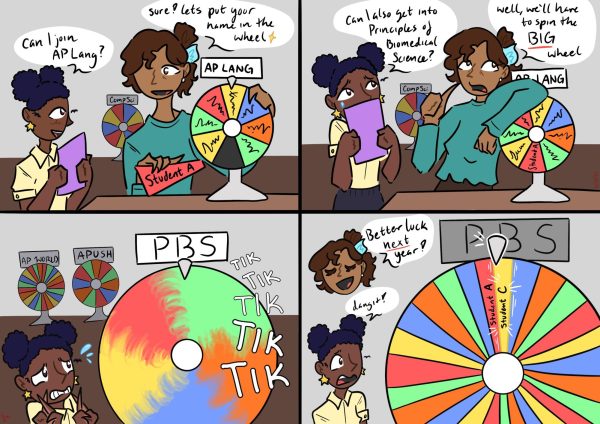End college legacies
Deciding on a college to attend is a big step in a student’s life. In some instances, a major factor in determining where students get accepted is their parents.
Students who apply to the same school from which their parents have graduated have higher acceptance rates.
This process of admitting students based on whether their parents attended a college is known as legacy admissions, and it is a highly preferential way of accepting students.
According to Business Insider, the practice began in the 1920s as a way for elite colleges to bar students of certain minority backgrounds from attending campuses that, at the time, were predominantly white and upper-class.
Universities who give these valuable opportunities to people who may not deserve it as much as other students are filling the student body with the same types of people instead of diverse students who could add much more to their campuses.
Potential students who are rejected from these types of institutions are often dismissed because they didn’t have enough of an opportunity to fully present themselves as a worthy applicant because of a legacy student taking their spot.
According to Forbes, 56 percent of America’s top 250 universities consider legacy in their admissions. Among these colleges are the “Big Three” Ivy League schools: Harvard, Yale and Princeton.
Similar schools considered legacy in their application decisions, but the Fair College Admissions for Students Act introduced in 2022 would eliminate this practice. The bill aims to enforce a ban on legacy or donor preferences in college admissions. And it’s clear there is a pressing need for reform.
One thing colleges should do is to phase out or replace legacy admissions practices in favor of more holistic methods, which would include the removal of application criteria related to legacy from essay prompts or application forms.
Additionally, colleges should phase out shared applications where these questions are found. Instead, colleges should use solely use other sites such as the Common App to conduct their admissions.
The century-old practice of legacy-based admission is an unfair process that caters only to the social elite, leaving less room for the rest of society to earn a higher education at many elite schools.
College legacy should not be considered in admissions no matter a family’s social or financial status because it promotes patronage over merit and keeps out students worthy certain schools in favor of those whose parents were alumni.

Senior Pranav Khosla is a first time reporter for The Californian. He enjoys writing and reading about history. Outside of school, he enjoys writing and...

